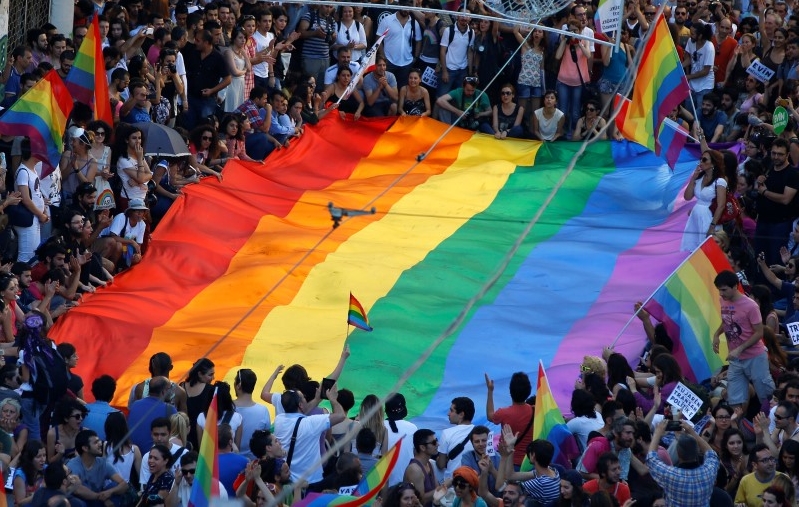
A group of up to 17 countries led by Belarus has blocked a plan to include the rights of gay, lesbian and transgender communities in a new urban strategy drawn up by the United Nations, according to sources close to negotiations.
Canada, backed by the European Union, the United States and Mexico, had pushed for including the recognition of LGBT people and an acknowledgment of homophobia in a key policy paper to be finalised at a major UN conference in Ecuador next week.
The UN's 'New Urban Agenda' is a non-binding agreement to address the challenges of rapidly growing cities globally and will be adopted at Habitat III in Quito, setting out guidelines for sustainable urban development over the next 20 years.
The recognition of LGBT communities and an acknowledgment of homophobia would be seen as a significant step by the United Nations with same sex relationships illegal in 76 countries around the world and punishable by death in seven.
But sources said a behind-the-scenes campaign by Belarus, supported by various nations including Russia, Egypt, Qatar, Indonesia, Pakistan and the United Arab Emirates, had resulted in the document only referring to cities being "friendly for families".
Josh Bueckert, a spokesman for the Canadian government, said Canada "fought hard" to have gay rights and homophobia officially recognized and insisted throughout negotiations that the "most vulnerable and disadvantaged" be kept in mind.
"We are not able to speak to the positions of other countries on the negotiation of the declaration for the New Urban Agenda ... unfortunately the LGBTQ2 community was left out," Bueckert told the Thomson Reuters Foundation.
A "Call for Action" section in the paper recognizes the special vulnerabilities and discrimination of specific groups in cities with the list including women and girls, the disabled, indigenous people, the homeless, slum dwellers, refugees and youth - but makes no mention of LGBTpeople.
ANTI-GAY SENTIMENT
Negotiations to thrash out the wording of the New Urban Agenda have been held over many months all over the world.
The final meetings prior to next week's conference that will include up to 30,000 delegates were held in New York in August and Surabaya, Indonesia, in July where there has been growing anti-gay sentiment this year.
The Indonesian government stated in August that there is "no room" for an LGBT movement in the southeast Asian nation.
Sources said that on the second day of the Surabaya talks, the words "family friendly" emerged from the Belarus delegation as a preferred option and Russia and Egypt supported the shift.
The Thomson Reuters Foundation was unable to contact a member of the Belarus delegation for comment.
However a release from Belarus stressed the "need for main streaming the family across the UN Post-2015 Development Agenda", saying the statement was made for 17 countries.
This list of countries also included Bangladesh, Malaysia, Nigeria, Saudi Arabia, Somalia, Iran and Zimbabwe. It says the group wish to "reaffirm that the family is the natural and fundamental group unit of society".
"We are convinced the human rights women and men, children and older persons, persons with disabilities could be best promoted and protected within the family environment," it said.
Ellen Woodsworth, chair of Women Transforming Cities International Society and a former Vancouver city councilor, drove the initial Canadian push to enshrine gay rights in the document.
She told the Thomson Reuters Foundation that she was shocked when she first raised the idea to be told that she should forget it because "Russia will shoot it out of the water" but was then told that Russia did indeed support the Belarus motion.
"Cities are where LGBT people go to find community but that in many nations they don't just face silencing but extreme violence," she said.
"It is just unbelievable that a document such as this on cities should not contain protections against discrimination for sexual orientation."







